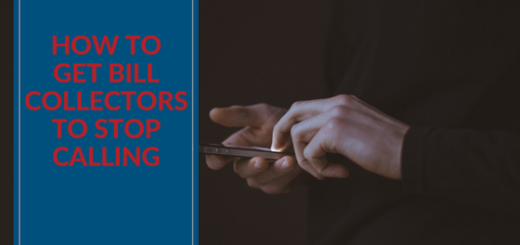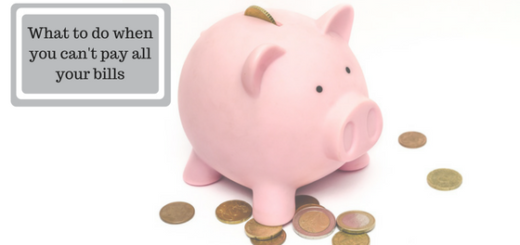Debt: How to know when you have too much and how to stop it
 Debt is not uncommon. It can happen to all of us. And, it can happen at any time. Debt is sneaky that way. Sometimes, getting out of debt just takes patience, time and careful planning. Unfortunately, that isn’t always the case. Debt tends to have a snowball effect if left untouched. When debt snowballs it can impact every inch of your life. It often feels like you’re completely out of options. At this point, your debt is dangerous. But, can you recognize the signs that you’ve reached this stage ? Here’s how to know if your debt is dangerous, and what you can do about it.
Debt is not uncommon. It can happen to all of us. And, it can happen at any time. Debt is sneaky that way. Sometimes, getting out of debt just takes patience, time and careful planning. Unfortunately, that isn’t always the case. Debt tends to have a snowball effect if left untouched. When debt snowballs it can impact every inch of your life. It often feels like you’re completely out of options. At this point, your debt is dangerous. But, can you recognize the signs that you’ve reached this stage ? Here’s how to know if your debt is dangerous, and what you can do about it.
How to know if your debt is out of control
You won’t admit there’s a problem
You hear it all the time— “The first step to solving a problem is admitting you have one.” This absolutely applies to debt. Refusing to acknowledge the problem does not make it go away. Are you putting the thought out of your mind every time it comes up? Do you hide or throw away your bills each month? Or, do you purposely try to avoid knowing how much you owe? If the answer to any of these questions is ‘yes’ you might be in denial.
Your balances are growing
Maybe you’re able to pay parts of your balances each month. That’s a great start, but if your bill the following month is just as big or bigger, the amount you’re paying is not cutting it. Unfortunately, if you are unable to increase your payments this means your debts are simply growing out of control.
You’ve depleted your savings
It’s a great practice to have an emergency fund for times like this. But, if you’ve already used this money for your delinquent bills and the problem is still growing, you may have a problem. Plus, if you’re knee deep in debt, it’s not likely that you’re able to contribute to any savings accounts. Not having any savings can often make the problem worse, because you’re unable to handle financial emergencies without resorting to using credit cards.
You’re afraid to answer the phone
Every time the phone rings you’re afraid it’s about money you owe. If you’ve fallen too far behind on your payments, bill collectors will start to pick up your scent. Once you’ve attracted their attention, the calls are practically nonstop. At this point, it’s time to act.
You can’t afford living expenses without using a loan or credit card
Just because you have debt doesn’t mean your other bills or routine expenses stop occurring. If you’re unable to pay them without going even further into debt (i.e.: using your credit card because you don’t have enough money), it’s a sign of a problem. Either your spending is exceeding your income, or your income just isn’t enough. Whatever the case may be, if you can’t afford to live without charging everything, your debt is dangerous (and likely to grow!).
Your quality of life is suffering
Are you having trouble sleeping at night, or is your work performance suffering because your mind is preoccupied with your debt? These things aren’t good for you, and it’s a sign that your debt has become harmful.
What you can do about it
You may be at a low point, but it doesn’t have to be doom and gloom forever. If you’re ready to begin restoring your financial health and stop the endless cycle of debt, you have options. And, making that decision is a BIG first step! Once you’ve decided enough is enough, you can start digging yourself out of the hole.
First, stop ignoring the problem. Find out how much you owe and to whom. Then, start developing a plan to get out of debt once and for all. Check your budget to see if there are any areas you can tweak to allocate that money towards some of your bills. Maybe there are some areas of spending where you can scale back. Do you have some bills such as student loans that will allow you to defer payments for a while? Another strategy is to see what resources exist that can help you. Our team at New Credit America can help you find a solution that best meets your needs right now. Call us at (877) 373-2330 to find out how we can help.
In the meantime, here are some resources to help you in the restoration of your financial health:
http://blog.newcreditamerica.com/cant-pay-bills/


